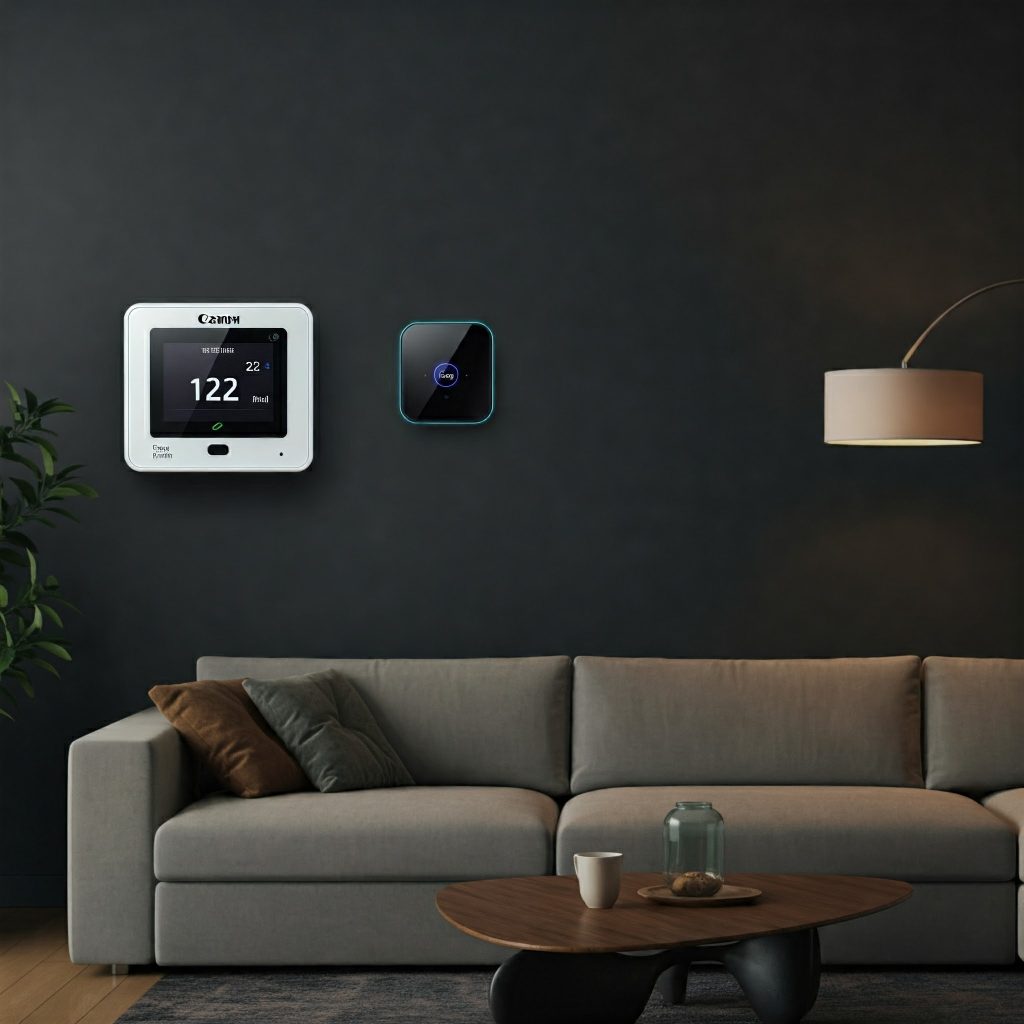Smart thermostats have been touted as game-changers in the quest for energy efficiency, promising to slash heating and cooling costs and reduce our carbon footprint. But with so many options on the market and varying claims about their effectiveness, it’s easy to be skeptical. Are smart thermostats really saving energy, or are they just another hyped-up gadget?
As we gear up for CES 2025, where the latest smart home innovations will be unveiled, let’s take a closer look at the science behind smart thermostats, analyze real-world data on their energy-saving potential, and explore the cutting-edge features we can expect to see at the show.
The Science Behind Smart Thermostats
- Learning Your Habits: Smart thermostats use machine learning algorithms to learn your household’s temperature preferences and occupancy patterns.
- Optimizing Schedules: Based on your habits, they create optimized schedules that automatically adjust the temperature when you’re away or asleep, minimizing energy waste.
- Remote Control and Geofencing: You can control your thermostat remotely from your smartphone or other devices, and even use geofencing to automatically adjust the temperature when you’re near or away from home.
- Energy Reports and Insights: Many smart thermostats provide detailed energy reports that track your usage and offer insights on how to save even more.
Real-World Data on Energy Savings
Several studies have shown that smart thermostats can indeed lead to significant energy savings.
- Nest: Nest claims that its thermostats save an average of 10-12% on heating bills and 15% on cooling bills.
- ecobee: ecobee reports similar savings, with its users saving an average of 23% on their heating and cooling costs annually.
- Independent Studies: A study by the Environmental Protection Agency (EPA) found that smart thermostats can save homeowners an average of 8% on their energy bills.
CES 2025: What to Expect
At CES 2025, we can expect to see even more advanced smart thermostat features and capabilities, including:
- Enhanced AI and Machine Learning: More sophisticated algorithms for even better energy optimization and personalization.
- Integration with Renewable Energy Sources: Smart thermostats that can seamlessly integrate with solar panels and other renewable energy sources to maximize efficiency.
- Voice Control and Smart Home Integration: Deeper integration with voice assistants like Alexa and Google Assistant for hands-free control.
- Predictive Maintenance: Thermostats that can detect potential issues and alert homeowners before they become major problems.
- Enhanced Energy Reports and Insights: More detailed and actionable energy reports to help homeowners understand and reduce their consumption.
Choosing the Right Smart Thermostat
With so many options on the market, choosing the right smart thermostat can be overwhelming. Consider the following factors:
- Compatibility: Ensure the thermostat is compatible with your HVAC system.
- Features: Consider the features that are most important to you, such as remote control, geofencing, energy reports, and voice control.
- Ease of Use: Choose a thermostat with a user-friendly interface and intuitive controls.
- Price: Smart thermostats range in price, so consider your budget when making a decision.
Conclusion
While the initial investment might seem daunting, the long-term energy savings and convenience offered by smart thermostats make them a worthwhile addition to any energy-efficient smart home. As technology continues to advance, we can expect even more impressive features and capabilities from smart thermostats in the years to come. CES 2025 will undoubtedly be a showcase of these innovations, providing a glimpse into the future of smart home energy management.
Call to Action
- Share your experiences with smart thermostats: Have you installed a smart thermostat in your home? Share your experiences and energy-saving tips in the comments below!
- Explore our other content: Check out our other blog posts and resources on smart home technology and energy efficiency.
- Stay informed: Subscribe to our newsletter for the latest updates on CES 2025 and the future of smart homes.



Pingback: Smart Home vs. Traditional Home: Energy Savings